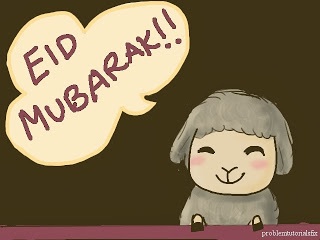تعبير عن عيد الفطر بالانجليزي
often abbreviated to Eid, is a Muslim holiday that marks the end of Ramadan, the
Islamic holy month of fasting (sawm). Eid is an Arabic word meaning “festivity”, while Fiṭr
means “breaking the fast”. The holiday celebrates the conclusion of the 29 or 30 days
of dawn-to-sunset fasting during the entire month of Ramadan. The first day of Eid, therefore,
falls on the first day of the month Shawwal. This is a day where Muslims
around the world try to show a common goal of unity. It is a day
of recognizance of God.
Eid al-Fitr has a particular salat (Islamic prayer) consisting of two raka’ah (units) and generally
offered in an open field or large hall.[1] It may only be performed in congregation
(Jama’at) and has an additional extra six Takbirs (raising of the hands to the ears
while saying “Allah-u-Akbar” [God is Great]), three of them in the beginning of the first
raka’ah and three of them just before ruku’ in the second raka’ah in the Hanafi
school.[2] This Eid al-Fitr salat is, depending on which juristic opinion is followed, Fard (obligatory),
Mustahabb (strongly recommended, just short of obligatory) or mandoob (preferable).
Muslims believe that they are commanded by God, as mentioned in the Qur’an, to continue
their fast until the last day of Ramadan[3] and pay the Zakat al-fitr before doing
the Eid prayer.
















